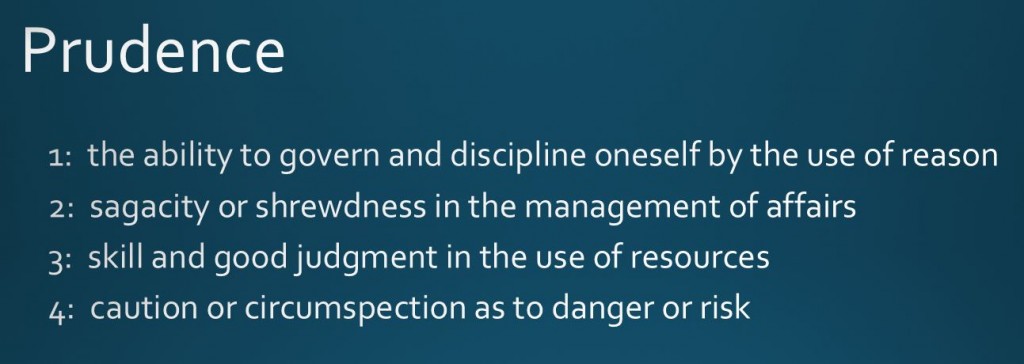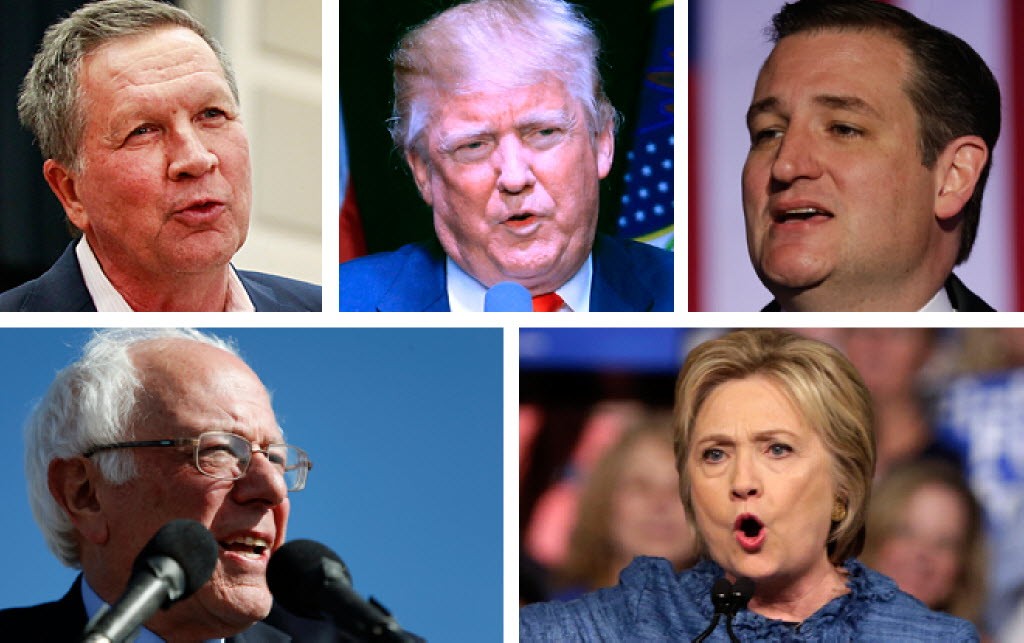Dear Brothers and Sisters,
 With the U.S. presidential election cycle in full throttle, I’m being asked which candidate I endorse. In replying, I remain neutral—I do not pretend to be able to guide others in their political decisions, though sometimes I remind those who ask of what is says in Proverbs: “When the righteous are in authority, the people rejoice; but when a wicked man rules, the people groan” (Proverbs 29:2 NKJV).
With the U.S. presidential election cycle in full throttle, I’m being asked which candidate I endorse. In replying, I remain neutral—I do not pretend to be able to guide others in their political decisions, though sometimes I remind those who ask of what is says in Proverbs: “When the righteous are in authority, the people rejoice; but when a wicked man rules, the people groan” (Proverbs 29:2 NKJV).
Sadly, a large part of the U.S. population (including many Christians) groan merely because of the party affiliation of the person who is ruling (or running for office). It seems to me that this sort of partisan groaning is far more vocal (and polarizing) in this cycle than others in recent memory. But so goes our culture.
Along with the partisan groaning comes the sad fact that only a fraction of Christians vote. Of the millions of self-described evangelical Christians in the U.S., only about 25% voted in 2000, 23% in 2004, and 26% in 2008. The number peaked at 27% in the 2012 presidential election where 78% of the evangelicals who voted, voted for Romney and 21% for Obama. Though our system of government gives people freedom of speech (including the right to groan) and freedom not to vote, I think Christians have a responsibility to advance the common good—a responsibility which, in part, is fulfilled by exercising their right as citizens to vote.
The virtue of prudence
Christians have long recognized that when the church and its members aim to influence secular authorities (thus engaging in the political process) they should do so in ways that seek the best possible outcome for the common good available at the time. This approach is grounded in the hope that incremental advances will lead to greater opportunity to further the common good in the “next round.” This incremental approach to advancing the common good is enjoined in the New Testament and advocated in Christian theology and ethics. It has to do with exercising the virtue of prudence. [1]

Seeking the most prudent outcome in government is not moral compromise—it’s political compromise that recognizes that an all-or-nothing approach to secular governance does not foster the common good and justice. Instead it undermines the limited good that a democratic political process is able to achieve among those who disagree.
Speaking of imprudence, some Christians circulate (often via social media) extreme right-wing or left-wing political viewpoints that sometimes include demonizing and even lying about political opponents. Given that effective politics in our democratic system is in large part based on compromise, such extreme, uncompromising positions tend to hinder rather than help the political process. Rather than reflecting prudence, these positions are, in effect, secular forms of self-righteousness and legalism.
I’ve been asked, “Who do you endorse?”
I’m often asked to endorse a candidate for U.S. president. Christians tend to want me to endorse one they consider “most Christian.” But coming as I do from a supra-legalistic background, I don’t think it would be prudent for me to sit in judgment of whether or not a particular person is or is not a “true Christian.” Four of the five main candidates (all five are pictured below) say they are Christian: Ted Cruz (a Baptist), Donald Trump (a Presbyterian), John Kasich (an Anglican) and Hilary Clinton (a United Methodist). The fifth main candidate, Bernie Sanders, is a Jew. I’ve learned to leave the determination of the genuineness of a person’s faith to Jesus who alone is our judge, for he knows our hearts.

Some notable Christian leaders have endorsed and others have vilified presidential candidates. For example, Donald Trump has been endorsed by Robert Jeffress (Pastor of First Baptist Church in Dallas), Jerry Falwell, Jr. (President of Liberty University), and Pat Robertson (Chancellor of Regent University). But Trump has been vilified by Michael Horton (Professor at Westminster Seminary) and Max Lucado (Pastor in San Antonio and popular author). It is my policy (in keeping with GCI’s policy for church leaders) to not publicly endorse an individual candidate or political party. That being said, given that celebrities have done well in past elections, I’m not surprised Donald Trump is doing well. I am surprised by the popularity of Bernie Sanders, a self-professed democratic socialist. Apparently the U.S. population is shifting in its understanding of our nation’s founding documents, and how they relate to our current social and economic situation.
In case you’re wondering, I’m registered to vote “no party,” which means I’m neither Republican nor Democrat. However, given my views concerning the sanctity of life, I lean toward conservative candidates. That being said, there are some conservatives I wouldn’t trust to be a baby sitter (and I can say the same about some liberals). I think each candidate must be evaluated on their own merits, knowing that their inner (private) character will tend to be seen, over time, in their public acts. As Jesus said, “By their fruit you will recognize them” (Matthew 7:20).
The biblical injunction
The Bible tells us to desire good leaders. We conclude that this means, when possible, we will involve ourselves in choosing those leaders. However, we are never dependent on these leaders. As noted by the psalmist, “It is better to trust in the Lord than to put confidence in man” (Psalm 118:8 NKJV). So we prayerfully make the best selection possible, which typically means choosing the one with the fewest problems along with the greatest strengths. Of course, we always bathe that choice in prayer, then having voted, we pray for the one who is elected.
Many of my friends voted in 2008 and 2012 for President Barak Obama and many did not. While I was not elated when he was elected, my response was to pray for President Obama and for his choices in appointing leaders in his administration. That is not only the best we can do—it is what we are told to do in Scripture. Note Paul’s words to Timothy:
I exhort first of all that supplications, prayers, intercessions, and giving of thanks be made for all men, for kings and all who are in authority, that we may lead a quiet and peaceable life in all godliness and reverence. (1 Timothy 2: 1-2 NKJV)
I plan to follow Paul’s exhortation, no matter who is elected U.S. president later this year. Let’s all be in prayer and let’s also love all the candidates as God’s children, no matter their party affiliation. Even as we vote, let us put our trust not in politicians or in political parties, but in Jesus who is Lord of all and oversees all. He alone is the one who can and will, in his time and way, change things for the better.
Eagerly anticipating what Jesus will do, through this election and beyond,
Joseph Tkach
_____________________
[1] Concerning the Christian virtue of prudence, Gary Deddo recommends two books (both published by IVP)—click on the links below to preview these books:
- Renewing Moral Theology: Christian Ethics as Action, Character and Grace by Daniel A. Westberg
- Politics for the Greatest Good: The Case for Prudence in the Public Square, by Clarke Forsythe



Dear friend and brother Joe, I have to tell you I was moved to tears as I read your latest update. I wish all Jesus followers everywhere, especially here in the U.S., could read this! Every week you write from the heart and each piece is very much appreciated, but, I have to say you “hit it out of the park” with this one. Prudence, indeed — what a concept! With love and blessings, Ross and Tammy.
Outstanding essay. I run into many “Christians” inside GCI and outside who apparently have in their articles of faith the pre-emptive clause that says “Thou shalt be a right-wing conservative.” These people seem to know more about the right-wing pundits and what they believe than about Christ. Oddly, they seem to be able to recognize the flaws on the political left but naively believe everything that spews out of the political right. This may flow down from a legalistic formative experience historically.
Your observation that the art of democratic government is the art of necessary compromise is well taken. I believe we should have the maturity to recognize that no political stance in this world is wholly righteous and pure. Someone who does even a small amount of research rather than swallowing politically doctrinaire ideas whole can be easily convinced of that. But we live in the age of the unsupported sound bite and clever but dubious internet propaganda. And you just have to hit the enter button to pass it around.
Karl Barth, in his time in Germany, had to actively oppose the rise of extreme right-wing politics. He was the principal author of the Barmen Declaration that opposed the “Nazi Christian Church.” It is hard to imagine the fusion of Nazism and Christianity but, on a smaller scale, my wife’s aunt left a congregation belonging to a large denomination in Mississippi some years back when the pastor stated from the pulpit that if you voted for the then Democratic presidential candidate you would go to hell.
Thank you again for the essay.
I agree with Ross – excellent article Joe! As usual, written from a very balanced and biblical perspective.
Thank you!
PD and Emma Lee
Yes, very wise advice. But I am wondering about the poles. If the poles strongly indicate that the best selection “doesn’t have a prayer”, then what?
Some things I think remembering that would serve all Christians well. The social policies of your party were constructed by imperfect politicians fueled by any number of ambitions. If we’re a Church (universal) that believes God is in control, we have to believe that He is the one in control of the end times—not whoever’s in office now, and not whoever succeeds them. I’m glad you took the time to point out the importance of prudence in political considerations, which is very personal decision. It pains me to see high profile leaders in the spiritual community involve themselves in partisan politics by endorsing candidates. I wonder however if you’ve given thought though that revealing your own leanings might be construed as at least tacit approval.
Thanks for saying it Louis. I don’t disagree with “the leanings”, but would not be influenced by them either. I also know most people who did not look like the current President, were not elated about the outcome as well. However, I’m sure they did not react as Pastor Joe did, by “praying” for the person elected regardless of who they were. When you look back at the hatred we experience in this “Christian” nation, in fact, at the world at large, it can be traced to our failure in not obeying Jesus when he gave us that great new commandment “to love one another”. I do believe He did not mean just those who look like we do.
Great food for thought , the essay and the comments. I am leaning toward the Anabaptist approach (non-participation) at the presidential level. My thinking is that regardless of who is elected, or which party, the executive will, fairly certainly, be involved in war. There are no “smart” bombs. Innocents will die. If I say that I am for the sanctity of life in the issue of abortion, should I not be consistent when it comes to collateral damage, the death and maiming of precious innocents, in warfare? Just some thoughts, Dan